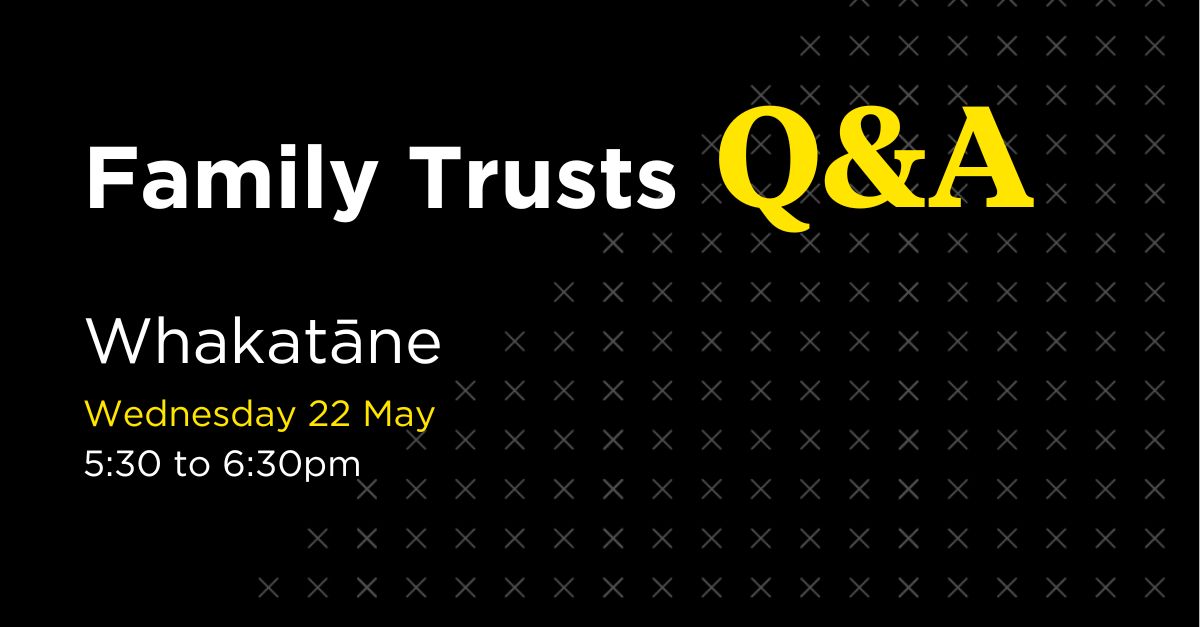The Healthy Home Standards and Residential Tenancies Amendment Act 2020 are now law. The Government describes these changes as necessary for modernising and clarifying the Act to reflect the modern renting market in New Zealand by increasing security of tenure for tenants; promoting good-faith relationships in the renting environment; and supporting tenants’ ability to assert their legal rights. With nearly 600,000 households renting in New Zealand many tenants may find these changes long overdue and beneficial, but these changes place substantial, and possibly expensive, requirements on landlords. Does your rental property make the standard?
1. Healthy Homes Standards
Since 1 July 2019, the Healthy Home Standards (Standards) has been law and they affect all residential tenancies and boarding houses. The changes are staged and came into effect on the following dates:
1 July 2019:
- All properties must have ceiling and underfloor insulation where is it reasonably practical to install;
- Landlords must include a signed statement with any new, varied or renewed tenancy agreement that the Landlord will comply with, or do already comply with standards; and
- Landlords must keep records that demonstrate compliance with the Standards that apply to the tenancy.
1 December 2020:
- From this date, Landlords must provide a statement showing the current level of compliance with the Standards in any new or renewed tenancy.
1 July 2021:
- All rental properties must comply with the standards within 90 days of any new or renewed tenancy.
1 July 2024:
- All rental homes must comply with the Standards.
The Standards introduce the following changes:
Heating Standard
- The main living room the property must have a fixed heating device that can heat the room to at least 18°C. The heater must be fixed and be at least 1.5kw in heating capacity but the heating capacity for a room may be higher due to the room’s size and location and the age of the property. Any electric heating or heat pump must have a thermostat.
- Landlords may be required to top up existing heating to meet the Standard.
- Tenancy Services have a Heating Assessment Tool on their website to assist Landlords in determining the heating requirements for their property.
Insulation Standard
- Rental properties within the Bay of Plenty region are required to have insulation of at least a R-value rating of 2.9 in the ceiling and 1.3 underfloor. The minimum thickness is 120mm.
- Existing insulation in the ceiling that was installed prior to 1 July 2016 is acceptable as long as it meets the R-value rating of 2.9 and the thickness has not degraded more than 30% since it was installed.
- Exemptions to installing the required insulation in parts of the property can be due to the properties design, limited access to the part of the property, installation of insulation could cause substantial damage to the property or health and safety reasons prohibit the installation.
Ventilation Standard
- All habitable rooms in a rental property must have at least one window, door or skylight which opens to the outside and can be fixed in the open position.
- Ventilation must include openable windows in each habitable space. The windows must comprise at least 5% of the floor area of that space.
- In any room with a cooktop, new fans or rangehoods installed after 1 July 2019 must have a minimum diameter (including ducting) of 150mm or an exhaust capacity of at least 50 litres per second.
- In any room with a shower or bath, new fans installed after 1 July 2019 must have a minimum diameter (including ducting) of 120mm or an exhaust capacity of at least 25 litres per second.
- Fans put in before 1 July 2019 must ventilate to the outside of the house and be in good working order, but they don’t have to meet the requirements listed above but when they stop working, however, they must be repaired to be in good working order or replaced with fans which do meet all the requirements.
Moisture Ingress and Drainage Standard
- Rental properties must have efficient drainage for the removal of storm water, surface water and ground water, including an appropriate outfall. The drainage system must include gutters, downpipes and drains for the removal of water from the roof.
- If the rental property has an enclosed subfloor, a ground moisture barrier must be installed if it is reasonably practicable to do so.
- There are exemptions such as if it is not reasonably practicable to install something if a professional installer can’t access the area without carrying out substantial building work causing substantial damage to the property or creating greater risks to a person’s health and safety than is normally acceptable.
Draught Stopping Standard
- Landlords must block any unreasonable gaps and holes in walls, ceilings, windows, floors and doors that cause noticeable draughts. Open fireplaces must be blocked unless the tenant and landlord agree otherwise.
- Tenants can ask landlords in writing to make the fireplace available for use and the landlord can agree. If it is available for use, it must be in good working order and free of any gaps which could cause a draught that are not necessary for the safe and efficient operation of the open fireplace.
2. Changes to the Residential Tenancy Act 1986 (RTA)
There have been a number of changes to the RTA which are summarised below:
Rent Freeze
- From 12 August 2020, rent increases are limited to once every 12 months. This is a change from once every 180 days (six months).
- Any rent increase notices given to tenants from 12 August 2020 must comply with the new 12-month rule. If a notice was given before 12 August 2020, it is still within the 180-day rule.
- The Covid-19 rent freeze is no longer in effect.
The following changes come into effect from 11 February 2021:
Security of rental tenure: Landlords will not be able to end a periodic tenancy without cause by providing 90 days’ notice. New termination grounds will be available to Landlords under a periodic tenancy and the required notice periods have changed. Tenants must now give 28 days’ notice to cancel a periodic tenancy. The grounds for terminating a periodic tenancy include:
- If the Landlord or a member of his family requires the property for the their immediate family – 63 days’ notice;
- The property is required for occupation by employees or contractors of the Landlord – 63 days’ notice;
- If the property is to be sold – 90 days’ notice;
- Extensive alterations or redevelopments are to be carried out to the property – 90 days’ notice; and
- The property is to be converted into a commercial premises or will be demolished – 90 days’ notice.
Landlords can apply to the Tenancy Tribunal for termination of a periodic tenancy if:
- The landlord has issued a tenant three notices for separate anti-social acts within any 90-day period; or
- The landlord has given notice that a tenant has been at least five working days late with their rent payment on three separate occasions within a 90-day period.
Changes for fixed-term tenancies: All fixed-term tenancy agreements will convert to periodic tenancies at the end of the fixed-term unless the parties agree otherwise, the tenant gives a 28-day notice, or the Landlord gives notice in accordance with the termination grounds for periodic tenancies.
Making minor changes: Tenants can ask to make changes to the property and Landlords must not decline if the change is minor, such as installing shelves on walls. Landlords must respond to a tenant’s request to make a change within 21 days but Landlords can set reasonable conditions for the installation of these changes and the Tenant must restore the property at the end of the Tenancy.
Prohibitions on rental bidding: Rental properties cannot be advertised without a rental price listed, and Landlords cannot invite or encourage tenants to bid on the rental (pay more than the advertised rent amount).
Fibre broadband: Tenants can request to install fibre broadband, and Landlords must agree if it can be installed at no cost to them, unless specific exemptions apply.
Privacy and access to justice: A suppression order can remove names and identifying details from published Tenancy Tribunal decisions if a party who has applied for a suppression order is wholly or substantially successful, or if this is in the interests of the parties and the public interest.
Assignment of tenancies: All requests to assign a tenancy must be considered. Landlords cannot decline unreasonably. If a residential tenancy agreement prohibits assignment, it is of no effect.
Landlord records: Not providing a tenancy agreement in writing will be an unlawful act and landlords will need to retain and provide new types of information.
Enforcement measures being strengthened: The Regulator (the Ministry of Business, Innovation and Employment) will have new measures to take action against parties who are not meeting their obligations.
Changes to Tenancy Tribunal jurisdiction: The Tenancy Tribunal can hear cases and make awards up to $100,000. This is a change from $50,000.
The following changes come into effect from 11 August 2021:
Family violence: Tenants who experience family violence will be able to withdraw from a fixed-term or periodic tenancy without financial penalty by giving two days’ notice and evidence of the family violence. If they are the only tenant, the tenancy will end.
Physical assault: A landlord will be able to issue a 14-day notice to terminate the Tenancy if the Tenant has assaulted the Landlord, the owner, a member of their family, or the Landlord’s agent, and the Police have laid a charge against the Tenant in respect of the assault.
3. Consequences for failing to adhere to the Standards
Landlords who fail to comply with the Standards could incur a penalty of up to $4,000. Landlords with more than one property could face separate fines for each property that fails to comply.
The Tenancy Tribunal can award exemplary damages for unlawful acts and make orders that include compensation, or termination of the tenancy.
These standards will mean that Tenants will often end up having better homes than their Landlord. For example the family home may not comply so it couldn’t be rented out without spending a fortune.
National has indicated it supports the Standards but would simplify them if elected. They would also overturn the amendments to the RTA. The NZ Property Investors Federation has advised Landlords to hold off from making any changes to their properties until the election, in case National is elected.



